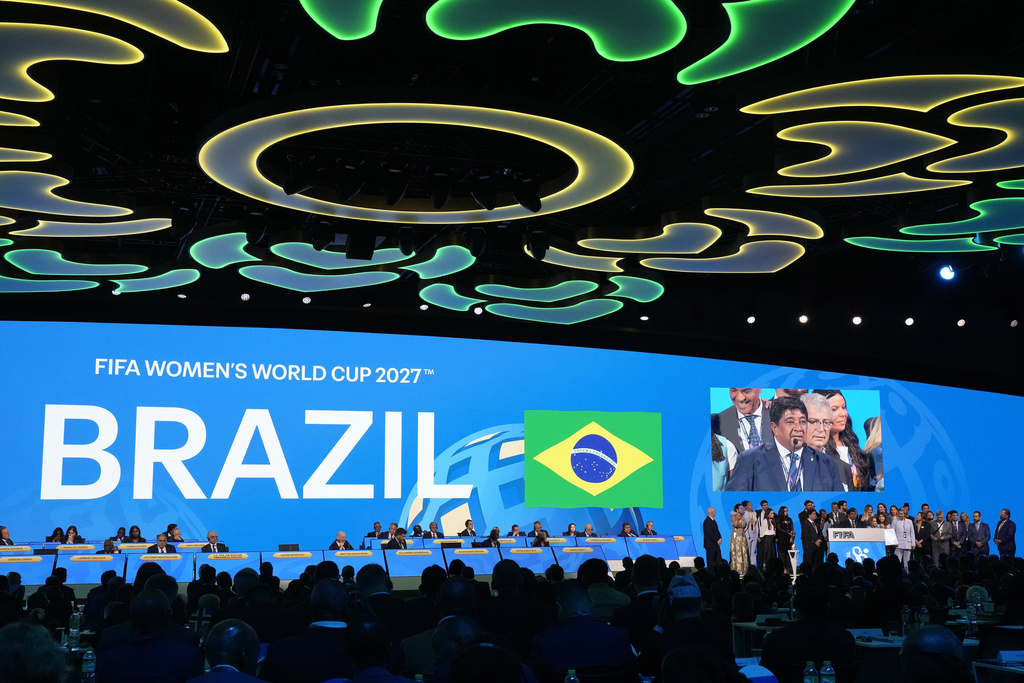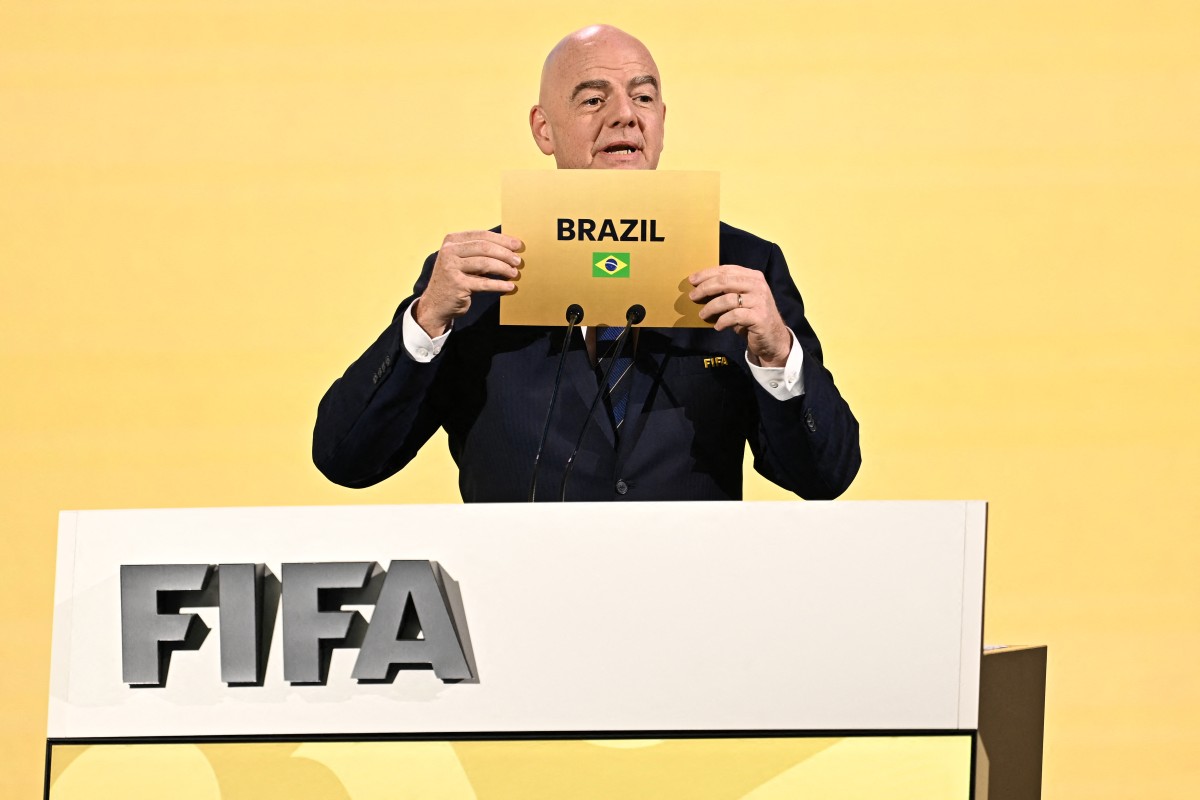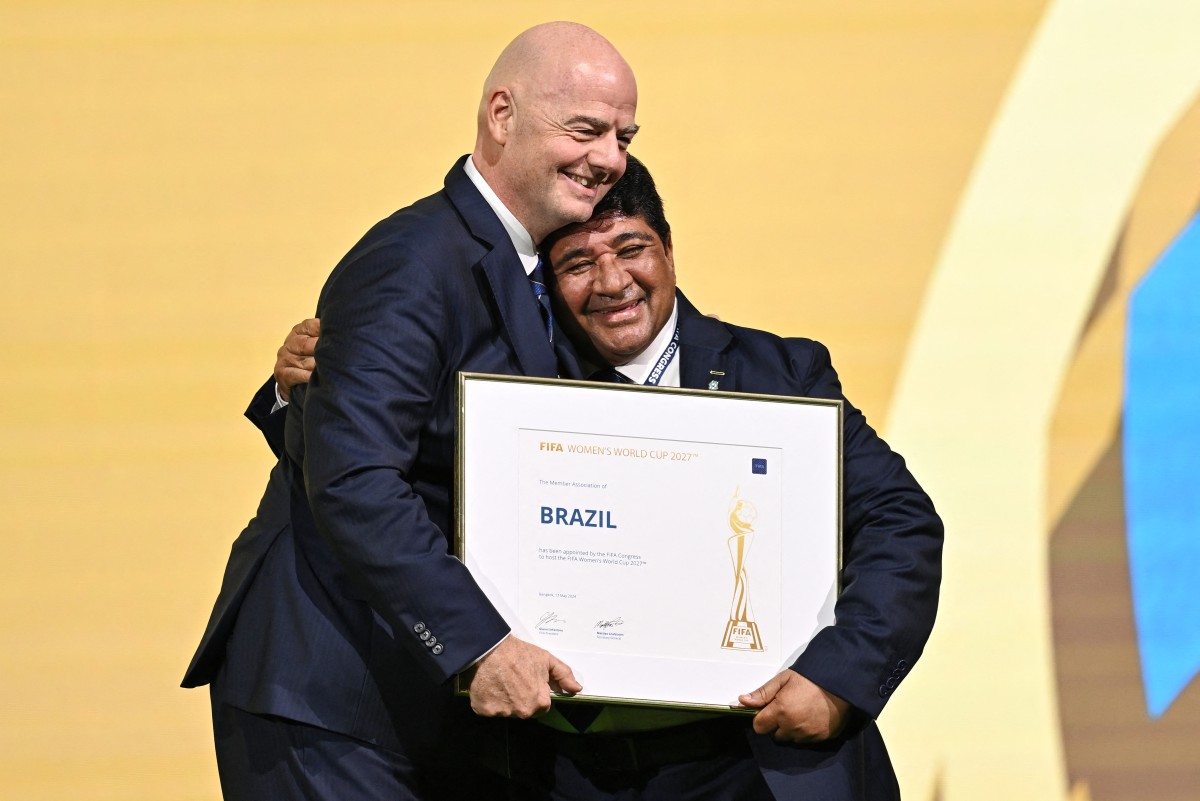
BANGKOK - Brazil was declared the host of the 2027 Women's World Cup at the FIFA Congress on Friday, beating the joint bid of Belgium, Netherlands and Germany to become the first South American country to hold the tournament.
The Brazil bid received the backing of 119 member associations of the FIFA Congress to host the 10th edition of the competition, compared to 78 votes for the European bid.
"We knew we would be celebrating a victory for South American women's soccer and for women," said president of the Brazilian Football Confederation, Ednaldo Rodrigues.
Brazil was given a slight edge in the run up to Friday's vote after a FIFA technical evaluation released last week gave it a score of four out of five, verses 3.7 for the Belgium-Netherlands-Germany bid
"You can be sure, with no vanity, we will accomplish the best World Cup for women."
Brazil was given a slight edge in the run up to Friday's vote after a FIFA technical evaluation released last week gave it a score of four out of five, verses 3.7 for the Belgium-Netherlands-Germany bid.
The race was whittled down to two last month after the United States and Mexico withdrew their joint bid to pursue the 2031 tournament instead.
ALSO READ: Brazil's bid to host the Women's World Cup tops European rival
The FIFA assessment scored each bid on criteria ranging from commercial viability, team facilities and accommodation, to broadcast sites, stadiums and fan festival venues.

It said Brazil's 10 stadiums were purpose-built and configured for major tournaments having hosted the 2014 men's World Cup and the bid had a strong commercial position and government commitment.
It highlighted the compact nature and support behind the Belgium-Netherlands-Germany bid, solid commercial viability, good infrastructure and short distances between venues, but also noted the smaller capacities of its 13 stadiums.
FIFA President Gianni Infantino said the Brazil tournament would be "the best Women's World Cup ever".

'Futile debate'
In his opening remarks at the Congress, Infantino pledged to boost access to football worldwide and sought to end what he called a "futile debate" over the amount of matches being played.
He said FIFA was organizing about 1 percent of club games and just 1 percent to 2 percent of national team matches, but was helping 70 percent of its members, which "would have no football without the resources" FIFA provides.
READ MORE: Unforgettable moments of Women's World Cup final
"I hope these figures will show that we should probably stop this futile debate, it's really pointless, and focus on what we need to do which is organize the best competitions and develop football around the world," he said.


